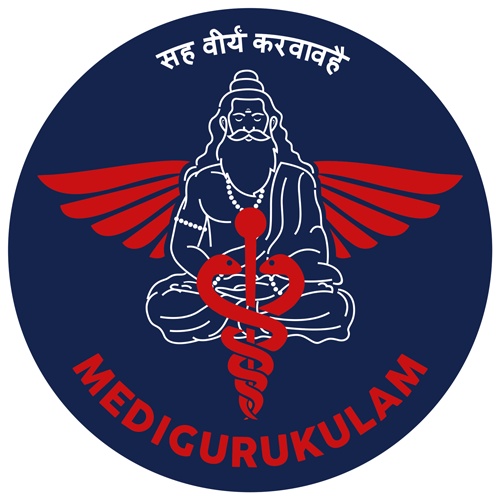Navigating the Complexities of Schizophrenia, A Professional Guide for MBBS Students
- info710780
- May 24
- 3 min read
Schizophrenia is one of the most challenging mental health disorders, affecting approximately 1% of the global population. As an MBBS student, grasping the complexities of this condition is crucial for both your academic journey and future clinical practice. This guide provides a structured overview of schizophrenia, its symptoms, diagnosis, treatment options, and effective management strategies.
Understanding Schizophrenia
Schizophrenia is a severe mental disorder characterized by episodes of psychosis—including hallucinations (such as hearing voices) and delusions (false beliefs). These symptoms can severely disrupt a person's daily life. The condition commonly begins in late adolescence or early adulthood, with about 75% of cases developing by age 24.
Current research suggests that a combination of genetic, neurodevelopmental, and environmental factors contribute to its onset. For instance, individuals with a family history of schizophrenia are 10 times more likely to develop the disorder compared to those without a family history. Awareness of these factors is vital for healthcare providers to better manage and support affected individuals.
Symptoms and Classification
Symptoms of schizophrenia are typically divided into three main categories: positive, negative, and cognitive.
Positive Symptoms
Positive symptoms involve excesses or distortions of normal emotions and behaviors. Hallucinations—such as hearing voices that are not there—occur in about 60% to 80% of individuals with schizophrenia. Delusions, such as believing one has special powers or is being persecuted, are also common.
Negative Symptoms
Negative symptoms represent a reduction in emotional expression and motivation. About 25% of individuals with schizophrenia experience these symptoms, which can result in withdrawal from social interactions, neglect of personal hygiene, and difficulties in experiencing pleasure. For example, individuals may struggle with enjoying activities that were once pleasurable, such as hobbies or social gatherings.
Cognitive Symptoms
Cognitive symptoms can significantly hinder daily functioning, affecting memory, attention, and problem-solving skills. Studies show that approximately 25% to 50% of individuals with schizophrenia experience cognitive deficits. These impairments may hinder the ability to hold down a job or maintain relationships, emphasizing the need for tailored treatment.
Diagnosis of Schizophrenia
Diagnosing schizophrenia involves clinical assessments and criteria found in the DSM-5 (Diagnostic and Statistical Manual of Mental Disorders). A comprehensive evaluation is critical, as some symptoms may overlap with other disorders such as bipolar disorder or major depression.
During the diagnostic process, it’s essential to rule out medical conditions that could cause similar symptoms. Common conditions to consider include thyroid disorders and neurological disorders. As MBBS students, developing a strong understanding of differential diagnoses will enhance your clinical skills.
Treatment Modalities
Pharmacological Interventions
Antipsychotic medications are the foundation of treatment for schizophrenia. They help manage both positive and negative symptoms. These medications fall into two categories: typical and atypical antipsychotics. Atypical antipsychotics, such as risperidone or olanzapine, are often preferred due to their lower risk of side effects, which occur in approximately 30% of patients taking typical antipsychotics.
It is essential for medical students to familiarize themselves with the specific actions and potential side effects of these medications, such as weight gain or metabolic syndrome, to ensure comprehensive patient care.
Psychosocial Interventions
Alongside medication, psychosocial treatments play a crucial role in managing schizophrenia. Cognitive-behavioral therapy (CBT) can help reduce the intensity of symptoms and improve coping mechanisms, while family therapy can educate relatives about the condition and improve family dynamics.
Psychoeducation programs have been shown to reduce hospitalization rates by up to 40%, underscoring the importance of building supportive networks for individuals affected by schizophrenia.
Management Strategies
Early Intervention
Research indicates that early intervention can drastically improve outcomes for individuals with schizophrenia. Starting treatment during a person’s first episode can reduce the risk of severe episodes and chronic impairment. Programs that identify early warning signs in teenagers can be incredibly effective, as approximately 50% of individuals experience their first symptoms in their late teens.
Ongoing Monitoring and Support
Regular follow-ups and support are key components in managing schizophrenia. Continuous monitoring not only helps adjust treatment plans but also promotes adherence to prescribed therapies. Collaborating with a multi-disciplinary team—including psychologists, social workers, and occupational therapists—can create a robust support system, significantly enhancing the quality of care provided.
Final Thoughts
In summary, schizophrenia is a complex disorder that requires a comprehensive approach for effective diagnosis, treatment, and management. As future healthcare providers, understanding the clinical and psychosocial implications of schizophrenia equips you to approach this challenging condition with empathy and professionalism.
The insights gained from this guide are essential for your role in enhancing the lives of individuals living with schizophrenia. By committing to lifelong learning and patient-centered care, you can make a meaningful impact in this vital area of mental health.






Comments